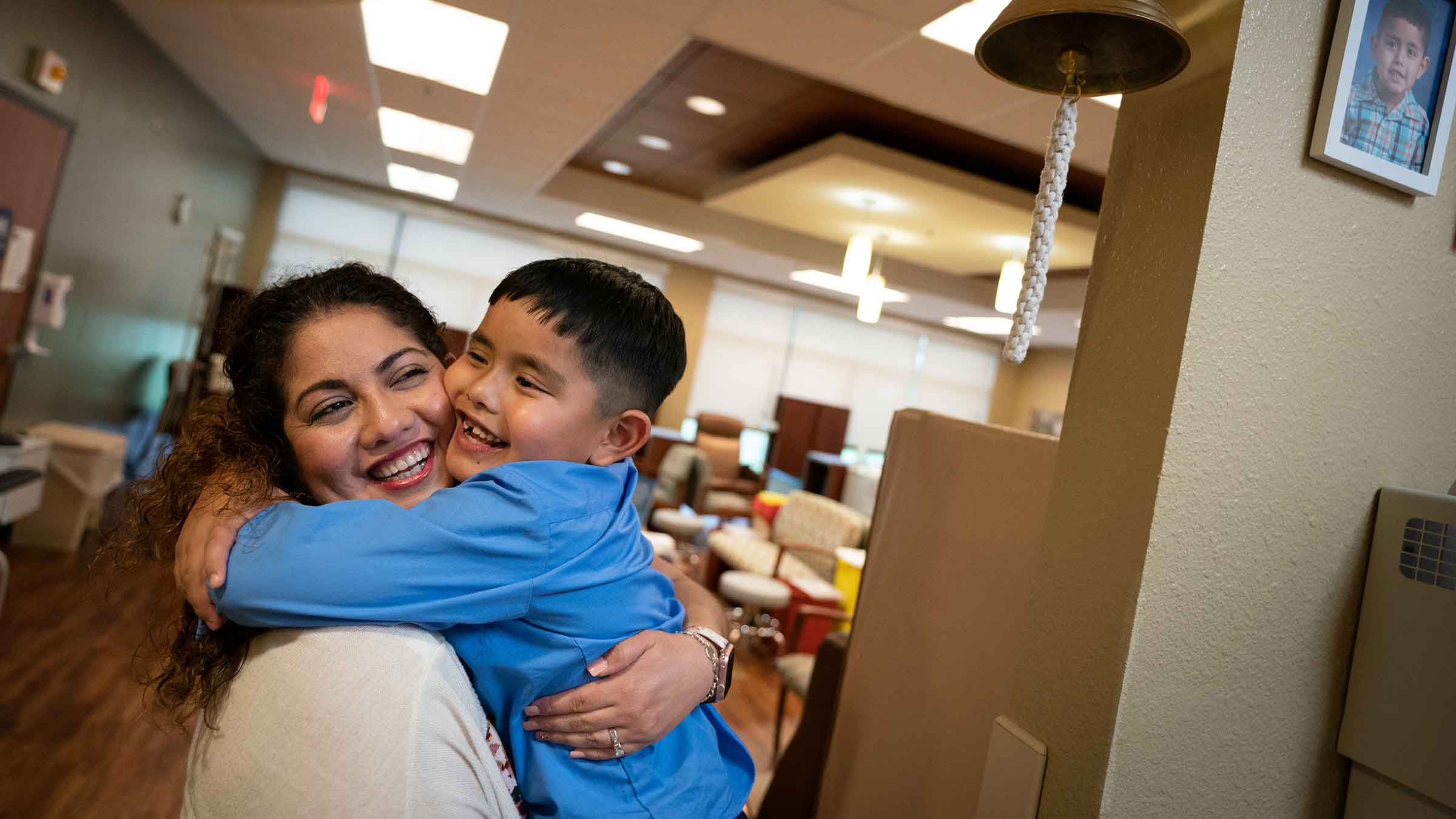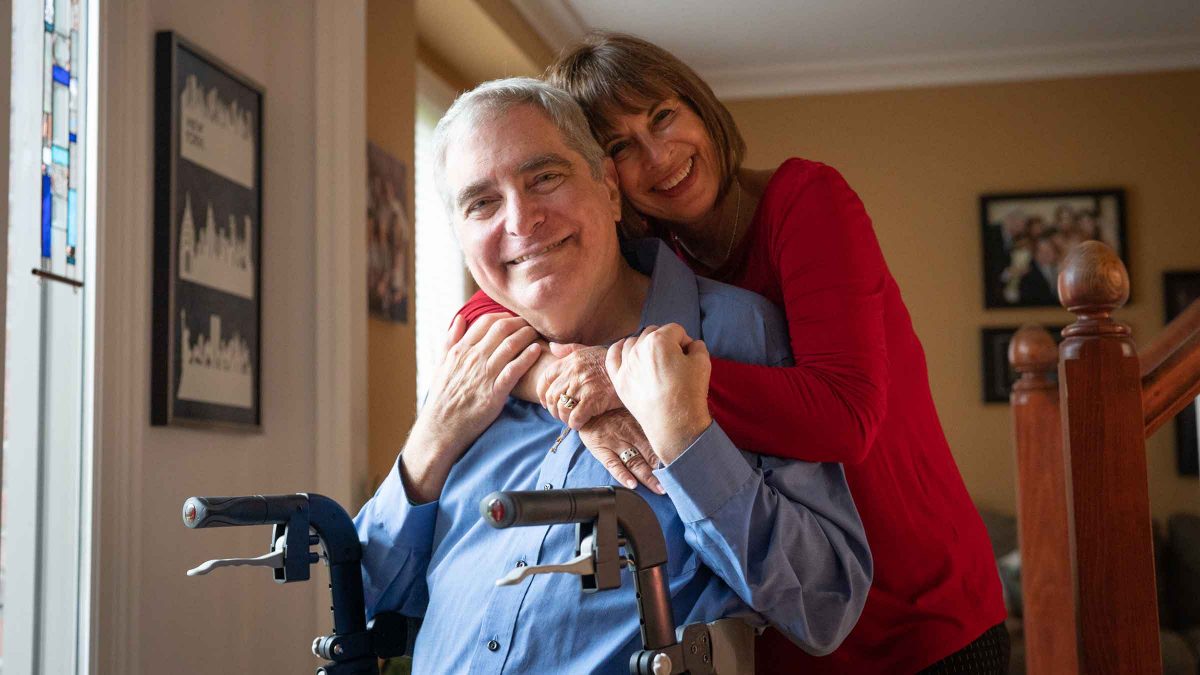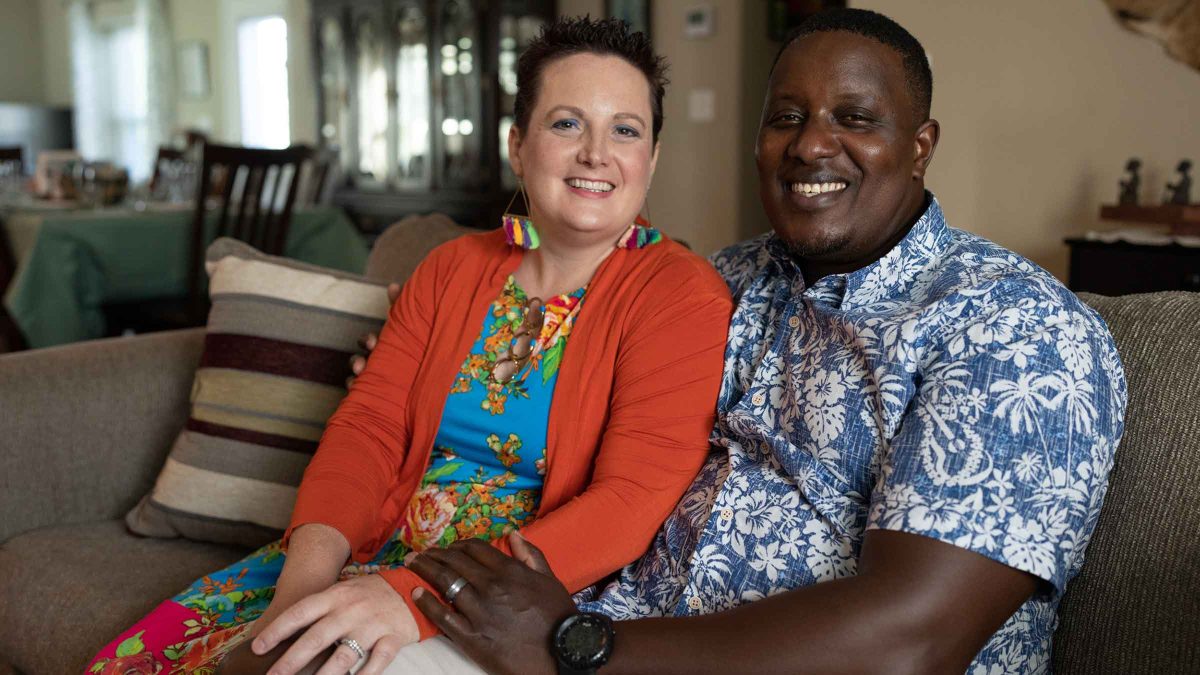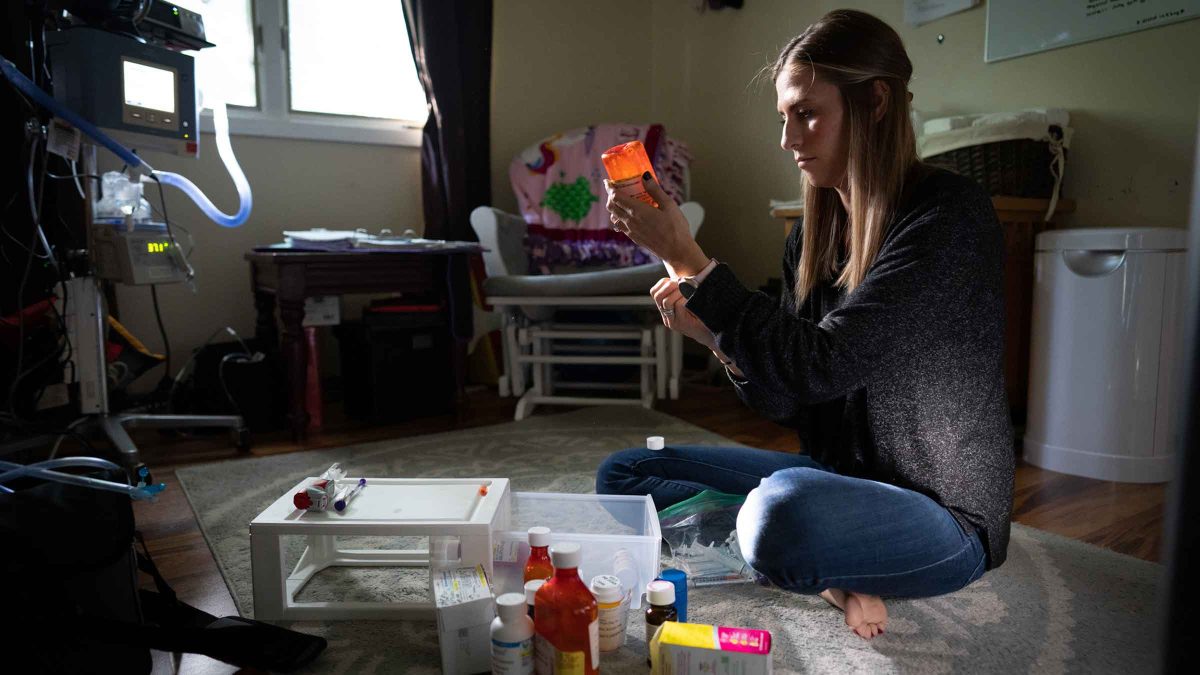What Is a Family Caregiver? Definition, Resources and More

CaringBridge Staff | 02.20.24
In a world where care extends beyond hospitals and clinics, the role of family caregivers has become increasingly significant.
The 2023 update from the American Association of Retired Persons (AARP) reveals a staggering statistic: there are approximately 38 million family caregivers in the United States alone.
This number underscores the critical role these individuals play in the healthcare landscape. However, the term “family caregiver” often brings confusion, especially when contrasted with professional caregiving roles like home health aides.
So, what is a family caregiver? It’s a role that transcends professional work and is deeply rooted in the personal connections we share. Whether you’re assisting a loved one through a new diagnosis or providing support for daily tasks, your role is essential.
As we explore the nuances of family caregiving, we aim to provide a clearer picture of this role, its importance, and the resources available. We’ll define caregiving in its broadest sense and then explore the different sides of being a family caregiver.
What Is Caregiving?

Caregiving is an act that manifests in many forms and touches lives across various stages of health and well-being. Caregiving involves providing support to someone who’s experiencing health challenges, whether they’re physical, mental or emotional. This support can range from practical assistance to emotional and social support.
Here are some common caregiving scenarios:
- Caring for someone undergoing cancer treatment: This means helping with medical needs such as managing medication and attending appointments, as well as offering emotional support.
- Assisting someone who has been recently injured in an accident: This could include helping with daily activities and providing support as they adjust to changes in their lifestyle.
- Mental health caregiving: This is an equally crucial area that is often overlooked. This applies to supporting someone dealing with chronic mental health issues or a mental health crisis. Caregivers often help these loved ones access therapy, provide a listening ear or ensure that they follow their treatment plan.
- Supporting someone who is recovering from surgery: This can involve wound care, ensuring that rest and recovery guidelines are followed, and helping with mobility around the house.
- Caring for a person with dementia: This is a specialized form of caregiving because dementia often progresses over time as the person’s memory and cognitive abilities decline. It requires patience, understanding and a commitment to providing a safe and comforting environment.
Each scenario highlights the diverse nature of caregiving, encompassing a wide range of responsibilities and emotional experiences.
Caregiving means the giving of yourself to another. Physically, mentally, emotionally are all parts of it. It’s giving of yourself to a loved one even when you feel there is nothing else to give.
Stephanie L. L.
Related Read: What to Say to Someone Before Surgery: 7 Encouraging Wishes
What Is a Family Caregiver?

A family caregiver is someone who provides care for a loved one facing health challenges, often without formal training or compensation.
This role extends beyond the traditional definition of family – family caregiving is not just provided by blood relatives. It can also be provided by friends, neighbors or any individual who steps into the caregiving role.
According to the same AARP report, family caregivers provide an average of 18 hours of care per week. However, this number can vary widely, depending on the situation.
Note that the value of being a family caregiver isn’t measured in hours but in the quality of care and support provided. These caregivers are essential to the health journey of their loved ones, as they offer necessary assistance in various forms.
Family caregiving means providing support, care, and assistance when it is needed the most, often for months, years, or beyond. It can be an unexpected and surprising role, with hidden joys and challenges.
Cassandra G.
Caregiving is a 24 hour a day job. It’s really hard on one person, even with a little help. Family caregiving is a labor of love.
Doris A. K.
Types of family caregivers
Family caregivers come in various forms, each unique in their relationship with the care recipient. Some common types include:
- Spouse caregivers: Often sharing a life and home, they provide daily care and emotional support to their partner.
- Child caregivers: Adult children caring for a parent’s health journey, balancing their own family and career responsibilities.
- Parent caregivers: Parents who care for children with chronic illnesses or disabilities, dedicating their time and emotional energy to their child’s wellbeing.
- Relative caregivers: An aunt, uncle, or other family member who cares for a relative who is ill.
- Friend or neighbor caregivers: Individuals who are not related but choose to support someone in their community or social circle out of compassion and friendship.
This list is not exhaustive. Each type of caregiver brings a unique perspective and carries its own set of challenges, yet all share the common goal of providing compassionate care.
Read Also: How to Navigate Spouse Caregiver Burnout
Family caregiver responsibilities
The responsibilities of family caregivers are diverse and multifaceted. They often include (but are not limited to):
- Supporting daily tasks: Assisting with eating, dressing, bathing or using the restroom.
- Medication management: Ensuring that the correct medications are taken at the right times.
- Scheduling appointments: Managing the calendar for medical visits, therapy sessions and other health-related appointments.
- Arranging transportation: Providing or organizing transport to appointments, shopping and other activities.
- Running errands: Shopping for groceries, picking up prescriptions and other necessary errands.
- Providing emotional support: Being a listening ear, offering encouragement and being present during challenging times.
These tasks reflect the breadth of care provided by family caregivers, which so often extends beyond physical support to emotional and practical assistance.
Family caregiving is being an advocate for a loved one. Helping them with day-to-day activities like shopping and dressing them if needed. Sometimes it’s just keeping them entertained.
Katrina H.
Do family caregivers get compensated?
The financial aspect of family caregiving is a complex topic. Many family caregivers provide care without any form of monetary compensation. According to the CDC, it’s estimated that family caregivers provide billions of dollars in free labor.
There are circumstances under which family caregivers can receive compensation. Programs such as The Program of Comprehensive Assistance for Family Caregivers, which is for caregivers assisting veterans, offer some financial support. Additionally, various state-by-state programs may provide forms of financial aid to family caregivers.
Family caregiving is unconditional love! You don’t get paid. It’s stressful yet rewarding. That being said, every caregiver (paid or unpaid) needs respite.
Rachel G.
Am I a Family Caregiver?

If you find yourself wondering whether you fit into the category of a family caregiver, you’re not alone. Many in this role may not immediately recognize themselves as caregivers. Here are some questions to consider:
- Do you regularly assist a family member, friend or neighbor with daily living activities?
- Are you managing or administering medications for someone other than yourself?
- Do you find yourself frequently attending medical appointments with someone who needs support?
- Have you modified your schedule or lifestyle to provide care or support to someone?
- Are you the primary person someone relies on for emotional support or decision-making in health matters?
If you answered “yes” to any of these questions, it’s possible that you are, in fact, a family caregiver. Recognizing this role in your life is the first step in understanding the support and resources available to you.
Resources for Family Caregivers
Family caregivers often face a unique set of challenges, but they don’t have to navigate them alone. There are numerous caregiving resources available to provide support:
- Support groups: Caregiver support groups offer a space to share experiences, seek advice and find communal support from others in similar situations.
- Task-management apps: To help manage the myriad of responsibilities, apps for scheduling, medication reminders and task organization can be invaluable.
- Check out our recommendations in 5 Essential Caregiving Tools Every Family Caregiver Needs
- Educational resources: Websites, books and online courses can provide valuable information on caregiving techniques and health management.
A particularly noteworthy resource is CaringBridge, a no-cost online health platform for caregivers. It facilitates the sharing of health updates and allows family caregivers to seek advice from their support system. It also helps coordinate tasks among a loved one’s care team. CaringBridge can be an essential tool in managing the complexities of caregiving, offering both practical and emotional support.
Remember, leveraging these resources can make a significant difference for everyone involved in your loved one’s health journey, as they provide much-needed support and guidance.
What Does Family Caregiving Look Like to You?
As we conclude our exploration of what a family caregiver is, it’s clear that this role is as diverse as it is vital. It’s a role that often goes unrecognized, yet it forms the backbone of healthcare and emotional support for many families.
Reflecting on the various aspects of family caregiving highlighted here, it’s evident that the journey is both challenging and rewarding. Caregivers play multiple roles—they’re nurses, confidantes, organizers and advocates. Their work is driven by love, commitment and a sense of duty.
It’s important to recognize that every caregiver’s experience is unique. Whether you’re providing care full-time or balancing caregiving with other responsibilities, your role is invaluable. Acknowledging this can be empowering and can also help in identifying the need for support.
We encourage you to pause and consider: What does family caregiving look like in your life? How has this role shaped your experiences and perspectives? Sharing your story can provide insight and inspiration to others in similar situations and help build a supportive community.